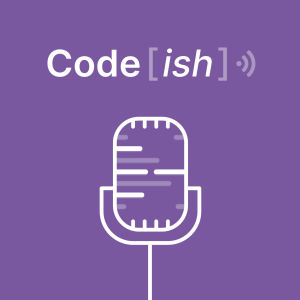
- Podcast Features
-
Monetization
-
Ads Marketplace
Join Ads Marketplace to earn through podcast sponsorships.
-
PodAds
Manage your ads with dynamic ad insertion capability.
-
Apple Podcasts Subscriptions Integration
Monetize with Apple Podcasts Subscriptions via Podbean.
-
Live Streaming
Earn rewards and recurring income from Fan Club membership.
-
Ads Marketplace
- Podbean App
-
Help and Support
-
Help Center
Get the answers and support you need.
-
Podbean Academy
Resources and guides to launch, grow, and monetize podcast.
-
Podbean Blog
Stay updated with the latest podcasting tips and trends.
-
What’s New
Check out our newest and recently released features!
-
Podcasting Smarter
Podcast interviews, best practices, and helpful tips.
-
Help Center
-
Popular Topics
-
How to Start a Podcast
The step-by-step guide to start your own podcast.
-
How to Start a Live Podcast
Create the best live podcast and engage your audience.
-
How to Monetize a Podcast
Tips on making the decision to monetize your podcast.
-
How to Promote Your Podcast
The best ways to get more eyes and ears on your podcast.
-
Podcast Advertising 101
Everything you need to know about podcast advertising.
-
Mobile Podcast Recording Guide
The ultimate guide to recording a podcast on your phone.
-
How to Use Group Recording
Steps to set up and use group recording in the Podbean app.
-
How to Start a Podcast
-
Podcasting
- Podcast Features
-
Monetization
-
Ads Marketplace
Join Ads Marketplace to earn through podcast sponsorships.
-
PodAds
Manage your ads with dynamic ad insertion capability.
-
Apple Podcasts Subscriptions Integration
Monetize with Apple Podcasts Subscriptions via Podbean.
-
Live Streaming
Earn rewards and recurring income from Fan Club membership.
-
Ads Marketplace
- Podbean App
- Advertisers
- Enterprise
- Pricing
-
Resources
-
Help and Support
-
Help Center
Get the answers and support you need.
-
Podbean Academy
Resources and guides to launch, grow, and monetize podcast.
-
Podbean Blog
Stay updated with the latest podcasting tips and trends.
-
What’s New
Check out our newest and recently released features!
-
Podcasting Smarter
Podcast interviews, best practices, and helpful tips.
-
Help Center
-
Popular Topics
-
How to Start a Podcast
The step-by-step guide to start your own podcast.
-
How to Start a Live Podcast
Create the best live podcast and engage your audience.
-
How to Monetize a Podcast
Tips on making the decision to monetize your podcast.
-
How to Promote Your Podcast
The best ways to get more eyes and ears on your podcast.
-
Podcast Advertising 101
Everything you need to know about podcast advertising.
-
Mobile Podcast Recording Guide
The ultimate guide to recording a podcast on your phone.
-
How to Use Group Recording
Steps to set up and use group recording in the Podbean app.
-
How to Start a Podcast
-
Help and Support
- Discover

Robert Blumen is a Dev Ops engineer at Salesforce. He's interviewing Alexey Syomichev, a software engineering principle architect at Salesforce, with over 25 years of experience. Their conversation begins with what constitutes an event (an immutable record encoding something that happened to an app). They then move on to describe consumers of those events, whether they're internal to an app or external to other services and business departments. Finally, they discuss ways in which you can store that event, either in a database or a running event log.
Databases and event logs each have their strengths and weaknesses, which Alexey enumerates. Event logs, for example, are easier to write to; but databases are easier to query for information. In general, Alexey believes that it can be important to organize your larger systems around an event log.
The conversation concludes with a discussion on how to use an event log in practical ways. First, you'll need to decide the schema to use when representing an event. State transitions are another reality to consider. If multiple events representing the same action come in, you need to make sure that the event log is atomic. Finally, there's a question of precisely how many events to retain, how far back you store your application's state.
Links from this episode- OK Event Log (the architecture files episode 3) by Ian Varley
- Apache Kafka
- CQRS Pattern by Martin Fowler
- Event-driven architecture
- How Apache Kafka Inspired Our Platform Events Architecture by Alexey Syomichev
- About event-driven driven_architecture
- Protobufs and Apache Avro are two ways in which you can serialize an event.
More Episodes
 2021-08-03
2021-08-03
 2021-06-22
2021-06-22
 2021-06-08
2021-06-08
 2021-04-13
2021-04-13
 2021-03-16
2021-03-16
 2021-02-18
2021-02-18
 2021-02-02
2021-02-02
 2021-01-12
2021-01-12
 2021-01-05
2021-01-05
 2020-12-29
2020-12-29
 2020-12-22
2020-12-22
 2020-12-17
2020-12-17
 2020-12-10
2020-12-10
 2020-12-08
2020-12-08
Create your
podcast in
minutes
- Full-featured podcast site
- Unlimited storage and bandwidth
- Comprehensive podcast stats
- Distribute to Apple Podcasts, Spotify, and more
- Make money with your podcast
It is Free
- Privacy Policy
- Cookie Policy
- Terms of Use
- Consent Preferences
- Copyright © 2015-2025 Podbean.com



